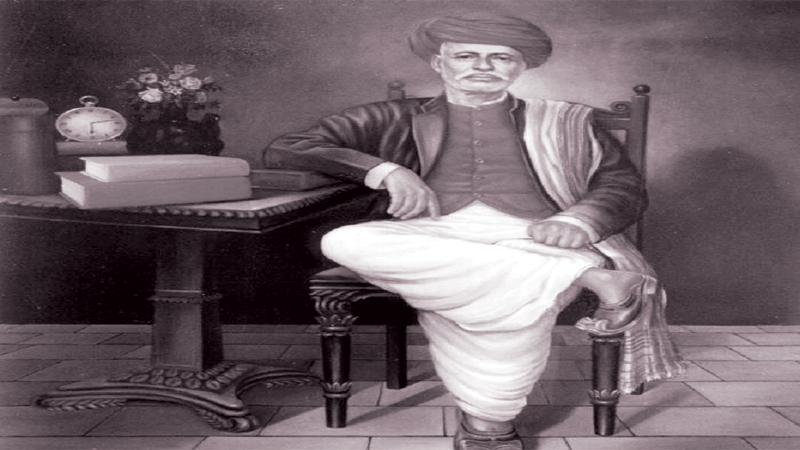(11 April ,1827 – 28 November ,1890)
Jyotirao ‘Jyotiba’ Govindrao Phule was a great social reformer and thinker of the nineteenth century India. He led the movement against the prevailing caste-rigidity in India. Mahatma Jyotiba Phule was also a pioneer for women education in India and fought for education of girls throughout his life. He is believed to be the first Hindu to start an orphanage for the unfortunate children.
Jyotirao Govindrao Phule was born in Satara district of Maharastra on 11 April, 1827. His father, Govindrao was a vegetable-vendor at Poona. Jyotirao’s family belonged to ‘mali’ caste.
Jyotirao was an intelligent boy but due to the poor financial condition at home, he had to stop his studies at an early age. He started helping his father by working on the family’s farm. Recognising the talent of the child prodigy, a neighbour persuaded his father to send him to school. In 1841, Jyotirao got admission in the Scottish Mission’s High School, Poona, and completed his education in 1847. There, he met Sadashiv Ballal Govande, who remained his close friend throughout his life. At the age of just thirteen years, Jyotirao was married to Savitribai.
Jyotiba’s quest for providing women and girls with right to education was supported by his wife Savitribai Phule. One of the few literate women of the time, Savitribai was taught to read and write by her husband Jyotirao.
Jyotiba suffered a stroke in 1888 and was rendered paralyzed. On 28 November, 1890, the great social reformer, Mahatma Jyotirao Phule, passed away.


